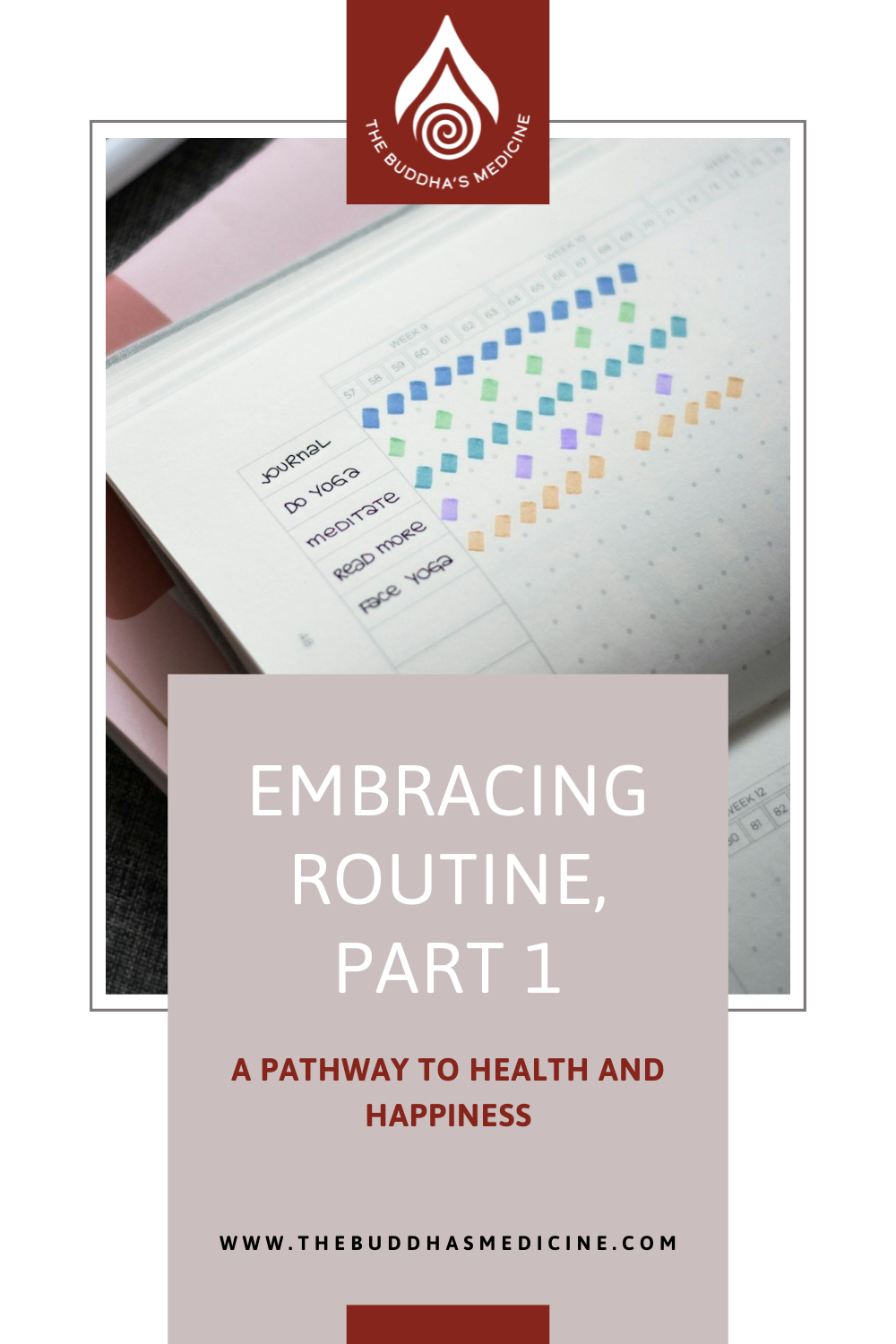Embracing Routine, Part 1: A Pathway to Health and Happiness
An Introduction to the Fundamentals of Ayurvedic Living
When you hear the word “routine,” what comes to mind?
For some of us, there may be great comfort in establishing routine. Routine may represent reliability, constancy, and safety. It may be a way to stay grounded. It might even be challenging or painful at times to decouple from a particular routine.
For still others among us, routine might be dull, uncomfortable, or restrictive. It may feel like an obstacle to creativity, freedom, and beatitude.
However you might feel personally about routine, though, there are aspects of our very nature as human beings that either function on routine, or don’t function at all.
For example, being off of a regular day-night cycle (“regular” meaning waking more-or-less with the sun and going to sleep after dark), especially in more extreme cases such as night shift work, comes with very well-established health risks, as this review of the science captures well.
These risks include:
Chronic sleeping challenges
Difficulty with focus and memory
More frequent accidents on the road and mistakes at work
Depression, anxiety, and other mood issues
High blood pressure, type 2 diabetes, and other metabolic disorders
More frequent cases of cancer
Digestive problems
Hormonal issues
Heart attack and stroke
And more.
This is because, fundamentally, human beings are diurnal (day-waking/day-active) animals. It is true that every person will have their own variation on this theme. That said, as the above example hopefully illustrates, moving too far away from a diurnal routine, especially over time, does not actually make a person nocturnal - it just causes more imbalance and ill-health.
There is routine in seasonal physiology, too. For those of us farther from the equator most especially (but really, everywhere around the world), we get more direct daytime sunlight as we move toward the summer solstice, and less sunlight that is more indirect as we progress toward the depth of winter. This pattern brings about changes in the weather, which in turn means changes in how we clothe ourselves (layers vs light clothing), what activities we undertake (water sports vs lighting the fireplace), and what foods and medicines grow naturally in our home climates. And of course, as different plants flourish and bloom, we may experience allergies in different seasons.
And then there’s the natural (ideally monthly) hormonal cycle. This shows up as the menstrual cycle in women and others born with female reproductive anatomy during a particular phase of life, so that’s the obvious example. But make no mistake - men experience monthly hormonal cycles, too. And as anyone who has wrestled with overly frequent or irregular menstrual cycles can tell you (certainly better than I can), irregularity in these routines can seriously hamper mood and appetite, and cause other health issues like headaches and skin breakouts among others.
Broadly, the monthly cycle is lunar (moon-oriented) in nature. And while there is still a lot of controversy among researchers regarding the effects of the lunar cycle on the complex nature of human beings, some studies have begun to draw strong connections. This fairly elegant study, for instance, demonstrates a relationship between the full moon phase of the lunar cycle and decreased sleep quality.
The purpose of this post is not to delve into each of these in extreme detail, but instead to provide broad overview of the topic of routine. However each of us may feel about routine, our health is dependent upon it - in a whole host of ways.
There is a whole vocabulary for this in the discipline of Ayurveda, because the importance of routine was well understood by the physicians who discovered and developed it thousands of years ago. What we eat, how much we sleep, how we stay active, the ways we practice hygiene, and so much more must be flexible and change with the time of day, the phase of the moon, and the season. And those behaviors must all be flexible and change because our minds and bodies change as those cycles progress, whether we will them to or not.
Dinacharya is one such word in Ayurveda’s specialized vocabulary for routine: the practice of aligning one’s conduct and health behavior with the time of day.
Rtucharya is another, and it refers to altering one’s lifestyle in accordance with the season.
In future installments of this series, we’ll take a more in-depth look at dinacharya, and also investigate rtucharya for each of the six (yes, that’s the number 6) seasons recognized in Ayurveda.
Interested in knowing more? Our first on-demand course covers this topic in more detail, and is now available! See below:
The Essentials of Ayurvedic Daily Living: Dinacharya
with Dr. Matt Van Auken, MD, MPH, ABOIM, DipABLM, E-RYT, YACEP
Are you seeking support with your health? Do you know someone who might benefit from our Ayurvedic approach? Book a cost-free, 15min Consultation, and we’ll discuss!
Professional disclaimer: please do not initiate any herbal or other medicinal interventions without the guidance of a knowledgeable provider. Herbal medicines such as guduchi have been shown in studies to reduce seasonal allergy symptom burden, but may also be unsafe in the context of certain health conditions such as Hashimoto’s and other autoimmune issues.
Dr. Matt Van Auken, MD, MPH
Dr. Matt is an Ayurveda-trained, triple board-certified physician.








